Dispute Fraudulent Charges: Credit Card Dispute Letter Sample for Charges Over 90 Days
Disputing charges you did not authorize can be difficult, especially if you notice the transaction after 60 days. Due to consumer protection laws, creditors must allow customers to dispute charges within 60 calendar days, but what if you are a little late? It is helpful to have a credit card dispute letter sample for charges over 90 days.
Whether you were too busy or didn't monitor your credit card transactions closely enough. Unauthorized charges can go unnoticed for several months. It can be frustrating to dispute a charge more than 90 calendar days after the transaction. We can help you write to your card issuer with a
Writing a letter can be inconvenient, and there is no guarantee that the creditor will honor your dispute. DoNotPay makes it easy to dispute charges over 90 days.
What Exactly Is a Credit Card Dispute Letter Sample for Charges Over 90 Days?
When writing a letter of any kind, a sample or template can help you organize your thoughts and efficiently deliver your message. A helps you dispute charges after 90 days. Credit card disputes can be an uphill battle, and it becomes more difficult after the standard 60 calendar days. A well-formatted letter gives you confidence that your credit dispute letter will be well received.
Letters are a powerful tool for improving your credit score and disputing errors. For instance, debt validation letters can help you eliminate debts that you believe are illegitimate by putting the burden of proof on the creditor. Letters can also help you dispute credit report issues such as collections notices and late payments.
How to Write a Credit Card Dispute Letter for Charges Over 90 Days With a Sample
| 1. Determine What You Need to Dispute and Why | Look over your credit card statement and find the charge that you want to dispute. Common reasons to dispute a charge include:
Make a copy of the statement and highlight the charges that you are disputing. You'll need these details to write your dispute letter, and you should also enclose a copy with your letter. |
| 2. Copy Our Template Into the Word Processor of Your Choice (Handwritten Is Also Acceptable) | You can use our sample for inspiration or copy it into your word processor and use it as a template. Include the following:
[Date] [Your Name] [Your Address] [Name of Credit Card Issuer] Attn: Billing Inquiries [Cardholder/Billing Services Address] (Typically found on the credit card statement) Dear Sir or Madam: I write to you to dispute a billing error for the amount of $______ on credit card account: ______. I have highlighted the disputed charges on my statement dated ______ and attached them to this letter. This charge is inaccurate because [describe the reason why the charge is not reflected accurately and if it should be removed or changed to another amount]. I request a correction of this charge. Please issue a credit for the charges related to this disputed transaction, and reflect the correct amount on my credit card statement. I have enclosed a copy of my statement [and receipt/invoice/any other documents] to support my position in your investigations. Please correct this billing issue as soon as possible. Yours faithfully, [Your name] Enclosures: Statement [Supporting evidence you are including] |
| 3. Mail the Credit Card Charge Dispute Letter | Finally, mail your letter and any documents to the credit issuer and wait for a response.
You can also try to file a complaint with the Federal Trade Commission. Unfortunately, the FTC only protects consumers filing disputes for credit card charges within 60 calendar days of the transaction. It can be exhausting to file a credit card dispute for charges after 60 calendar days. |
Dispute Credit Card Charges After 90 Days With Help From DoNotPay
After a transaction is 60 days old, many credit card issuers will be less cooperative with disputes, and the FTC may not be able to help you with a complaint. Sending a well-written letter is your best option to dispute a credit card charge after 90 days, but you don't have to do it on your own. DoNotPay has helped users dispute charges on their credit cards after 90 days and successfully clean up their credit reports. We write the credit card dispute letter on your behalf and help you resolve a dispute in your favor.
How to clean up your credit report using DoNotPay:
If you want to clean up your credit report but don't know where to start, DoNotPay has you covered in 3 easy steps:
- Search Clean Credit Report on DoNotPay.
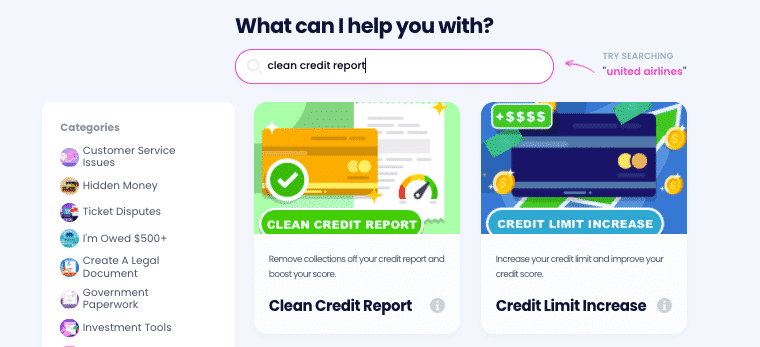
- Prepare a recent copy of your credit report that you can use as reference.
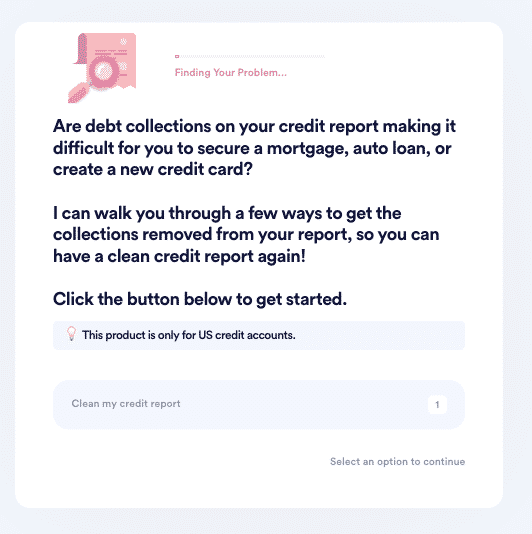
- Let us guide you through the 4 potential options:
- If you've already paid off your debt, we'll help you file a Goodwill Removal Request to get it removed.
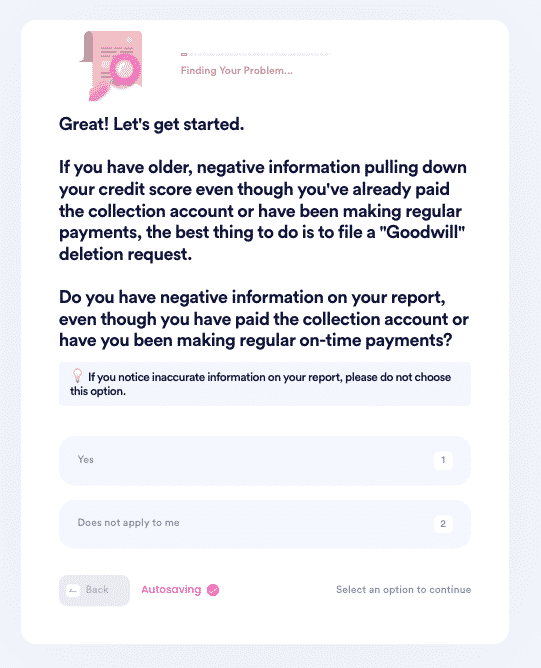
- If you notice any errors in your report (we have a list of common errors you can use!), we'll help you file a credit dispute to the creditor or major credit bureaus.
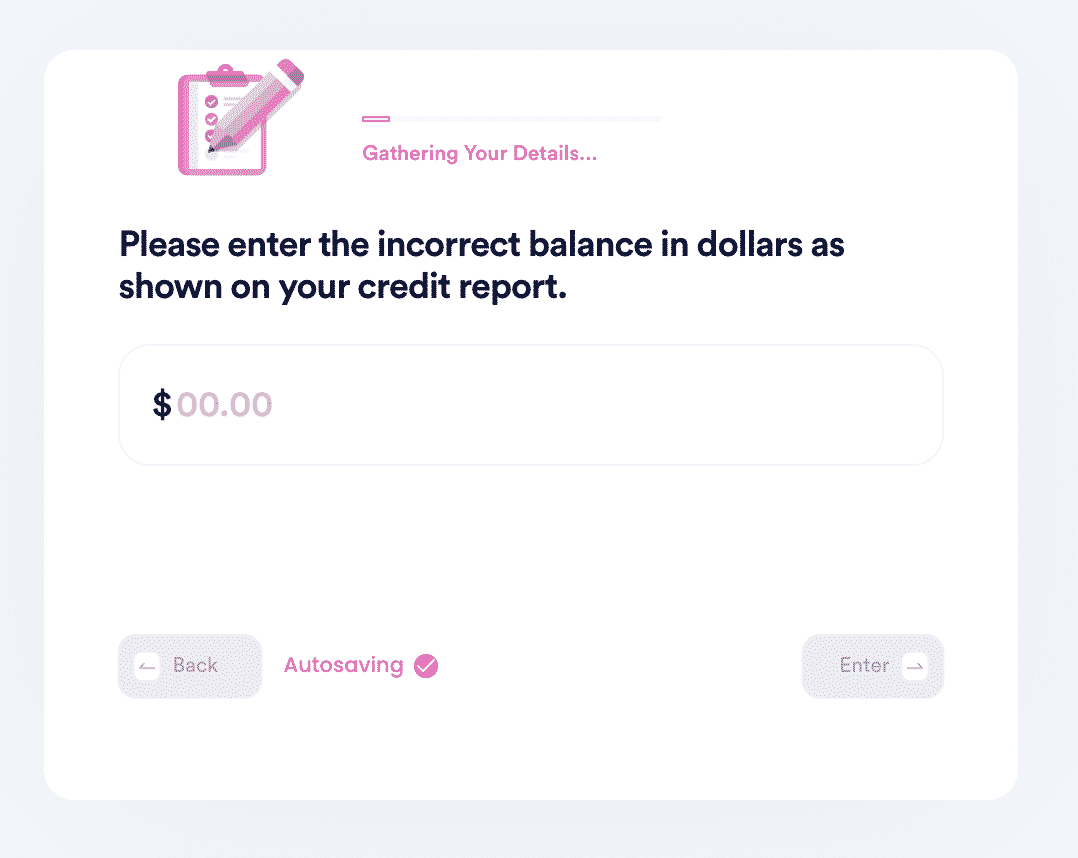
- If there are no errors, we'll check if you're still eligible to file a debt validation request. If they can't validate your debt, they're required to remove it from your report, and they can't collect it!
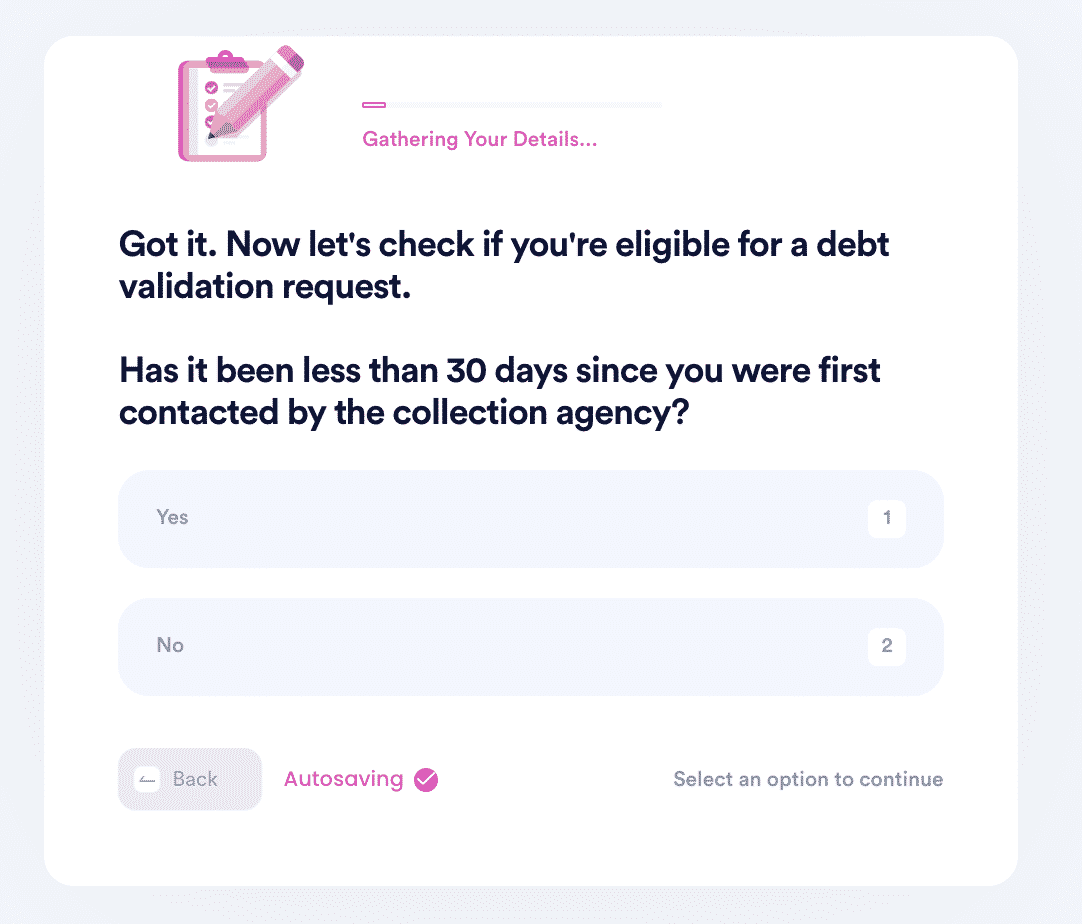
- Lastly, if none of the above options work, we'll help you file a pay-to-delete negotiation letter. You can customize the amount you are willing to pay in exchange for getting the item removed.
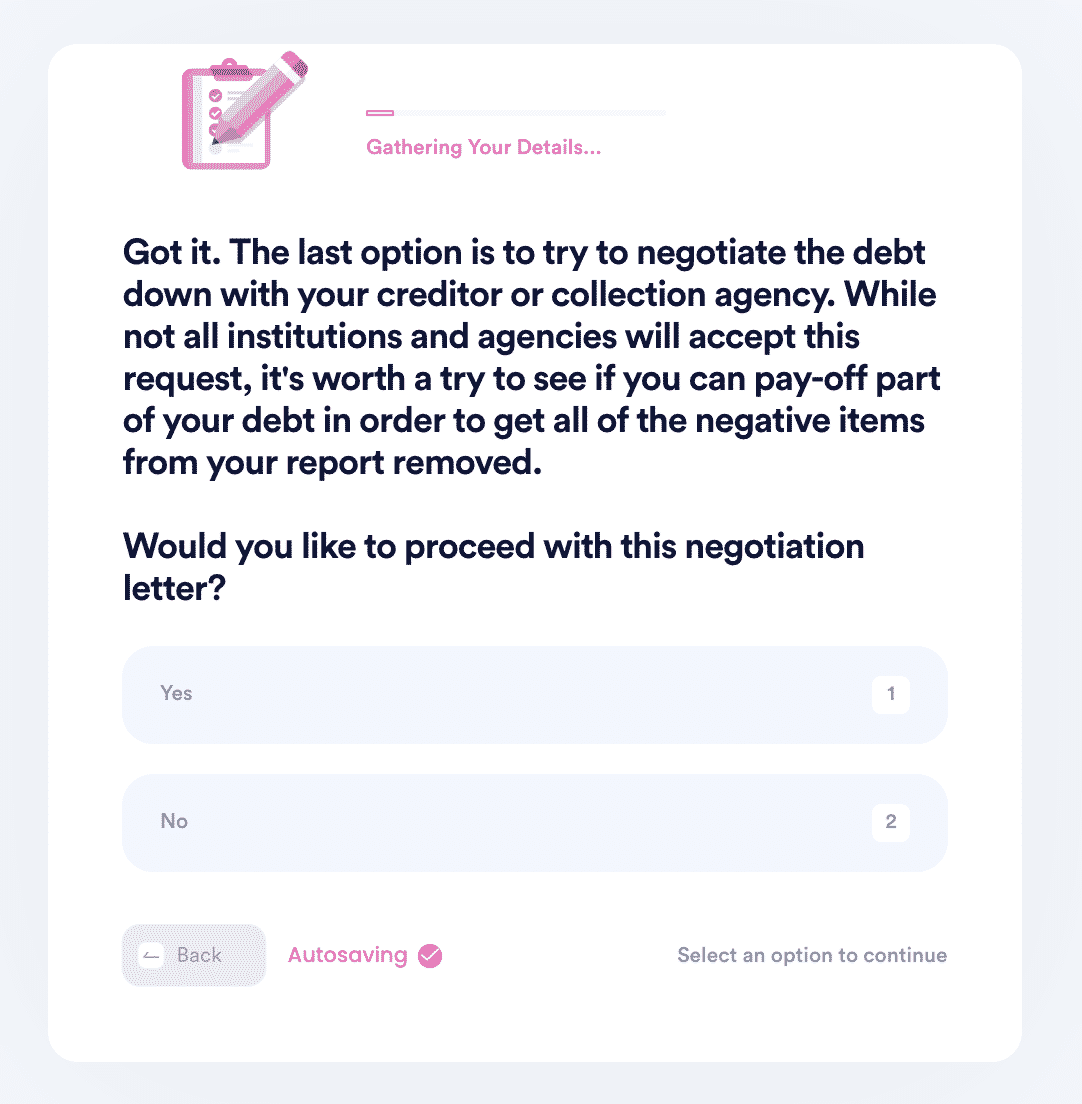
You can also check out our other credit products, including Credit Limit Increase, Get My Credit Report, Keep Unused Cards Active, and more!
Can DoNotPay Help Me With Other Credit Issues?
DoNotPay is the world's first AI Consumer Champion. We can help you with a variety of credit issues from our convenient mobile app or website. The solution to the following questions are at your fingertips:
- How to Improve Your Credit Score?
- How to Fix Credit Score?
- How to Remove Inquiries from Credit Report?
- How to Remove Collections from Credit Report?
- How to Remove Late Payments from Credit Report?
Boost your credit score with DoNotPay today.
 By
By